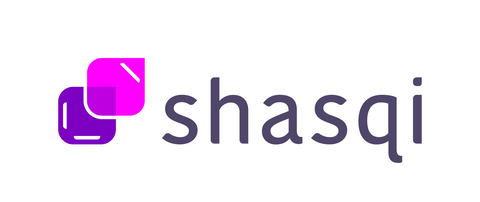Shasqi to Present at the 40th Annual J.P. Morgan Healthcare Conference
Shasqi to Present at the 40th Annual J.P. Morgan Healthcare Conference
SAN FRANCISCO--(BUSINESS WIRE)--Shasqi, a clinical-stage biotechnology company developing precision activated oncology therapeutics with its proprietary Click Activated Protodrugs Against Cancer (CAPAC™) Platform, announced today that its Founder and CEO, José M. Mejía Oneto, M.D., Ph.D., will present at the 40th Annual J.P. Morgan Healthcare Conference on Monday, January 10, 2022, at 10 a.m. EST. Dr. Mejía Oneto will provide an overview of Shasqi, recent pipeline developments and corporate milestones.
The presentation will be available as a live webcast through the J.P. Morgan Healthcare Conference portal and an archived recording will be made available after the event.
About CAPAC and SQ3370:
SQ3370 is the first click chemistry-based treatment to be tested in humans, and utilizes Shasqi's proprietary CAPAC platform, an approach that activates cancer drugs at a tumor with decreased systemic toxicity. Shasqi is validating its platform with SQ3370, which is designed to activate a powerful chemotherapeutic, doxorubicin, at the site of the tumor. The investigational product is based on the chemical reaction between a drug protected through a trans-cyclooctene modification (a protodrug) and a tetrazine-modified biopolymer. The biopolymer is injected into the target tumor lesion, where it precisely activates an intravenously infused protodrug. Shasqi believes its click-chemistry approach can improve the efficacy and safety of many existing drugs and various modalities that have a limited therapeutic window.
About Shasqi:
Shasqi is a privately held, clinical-stage biotechnology company whose mission is to enable patients to beat cancer with tumor-localized therapies. Shasqi leverages its proprietary CAPAC Platform to develop precision oncology therapeutics designed to deliver unprecedented doses precisely focused at the tumor with an uncharacteristically mild safety profile - breaking through the historic ceiling of dose-limiting toxicities. Shasqi's CAPAC Platform is highly modular and can be applied to a broad range of cancer drugs that are otherwise limited by toxicity, enabling the exploration of therapeutic biology in ways that were not previously possible.
Contacts
Media:
Cory Tromblee
media@shasqi.com
